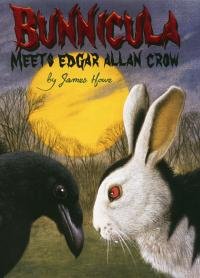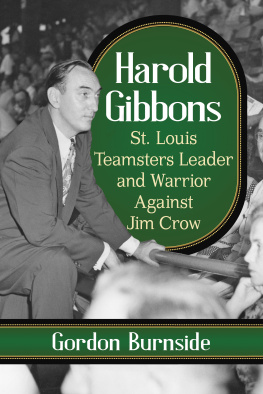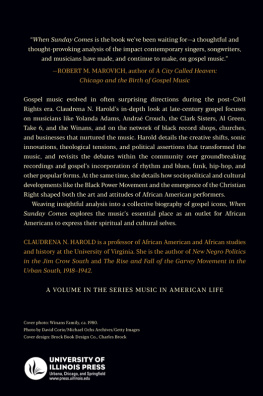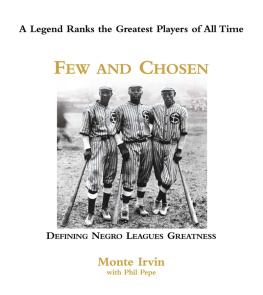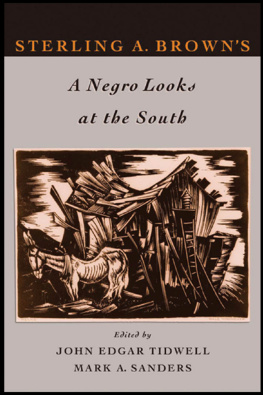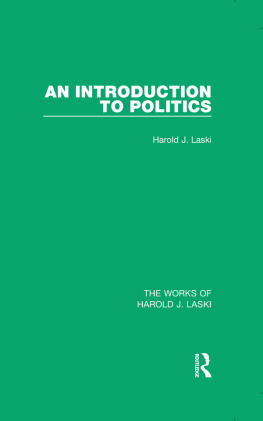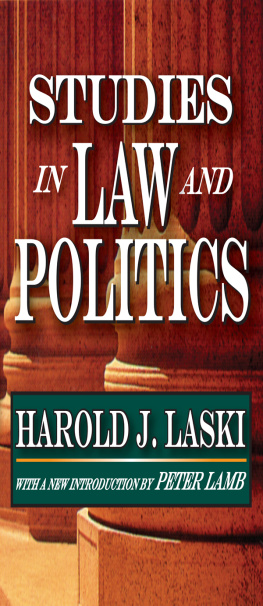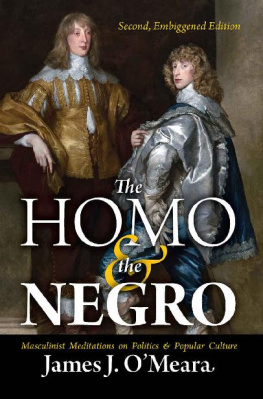New Negro Politics in the Jim Crow South
SERIES EDITORS
Bryant Simon, Temple University
Jane Dailey, University of Chicago
ADVISORY BOARD
Lisa Dorr, University of Alabama
Grace Elizabeth Hale, University of Virginia
Randal Jelks, University of Kansas
Kevin Kruse, Princeton University
Robert Norrell, University of Tennessee
Bruce Schulman, Boston University
Marjorie Spruill, University of South Carolina
J. Mills Thornton, University of Michigan
Allen Tullos, Emory University
Brian Ward, University of Manchester
A Sarah Mills Hodge Fund Publication
This publication is made possible, in part, through a grant from the Hodge Foundation in memory of its founder, Sarah Mills Hodge, who devoted her life to the relief and education of African Americans in Savannah, Georgia.
2016 by the University of Georgia Press
Athens, Georgia 30602
www.ugapress.org
All rights reserved
Set in Minion Pro and Myriad Pro by Graphic Composition, Inc., Bogart, Georgia
Printed and bound by Sheridan Books
The paper in this book meets the guidelines for permanence and durability of the Committee on Production Guidelines for Book Longevity of the Council on Library Resources.
Most University of Georgia Press titles are available from popular e-book vendors.
Printed in the United States of America
20 19 18 17 16 c 5 4 3 2 1
Library of Congress Cataloging-in-Publication Data
Names: Harold, Claudrena N., author.
Title: New Negro politics in the Jim Crow South / Claudrena N. Harold.
Description: [First edition] | Athens, GA: The University of Georgia Press, [2016] | Series: Politics and culture in the twentieth-century South | Includes bibliographical references and index.
Identifiers: LCCN 2016001697 | ISBN 9780820335124 (hardcover : alk. paper)
Subjects: LCSH: African AmericansSouthern StatesPolitics and government20th century. | African AmericansRace identitySouthern StatesHistory20th century. | Civil rights movementsSouthern StatesHistory20th century. | Labor movementSouthern StatesHistory20th century. | Black nationalismSouthern StatesHistory20th century. | African AmericansIntellectual life. | Southern StatesRace relationsHistory20th century. | Southern StatesPolitics and government18651950.
Classification: LCC E185.61 .H249 2016 | DDC 323.1196/0730750904DC23 LC record available at http://lccn.loc.gov/2016001697
ACKNOWLEDGMENTS
Several institutions and a host of family, friends, mentors, colleagues, and students played crucial roles in this books completion. The College of Arts and Sciences and the Corcoran Department of History at the University of Virginia (UVa) provided financial support during the most critical stages of research and writing. I am particularly grateful for the history departments administrative team of Kathleen Miller, Ella Wood, Jennifer Via, Whitney Yancey, and Kent Merritt.
This book also benefitted immensely from the expertise of archivists and librarians at Virginia Union University, Duke University, Howard University, Virginia State University, the University of North Carolina at Chapel Hill, and UVa.
A very special thanks goes to my colleague Thomas Klubock, who read the entire manuscript and provided much needed assistance. I also want to thank my colleague Grace Hale for her support of this project from its inception. She directed me to the University of Georgia Press, from which I was able to benefit from the keen insight of acquisition editor Walter Biggins, project editor John Joerschke, and freelance copyeditor Ellen Goldlust. I am also grateful to the editors of the Politics and Culture in the Twentieth-Century South series, Bryant Simon and Jane Dailey.
Davarian Baldwins scholarly example, as well as his insightful commentary on the manuscript, strengthened this book in numerous ways. I owe him a world of gratitude. Equally important has been the work of Corey D. B. Walker, who had a profound influence on my approach to the black intellectual tradition and my chapter on Virginia Union intellectuals. To call him a colleague and a friend is a privilege I do not take for granted. I also have a great deal of appreciation and respect for my colleague and friend Marlon Ross. His work on the gender politics of the New Negro movement has influenced me greatly; in fact, it is hard to imagine even getting to this point in my career without his unwavering support. My thinking on gender and womens history has also been enriched by the scholarship of Cheryl Hicks, whose research on early twentieth-century America brilliantly captures the humanity of black working people. Long conversations about black intellectual history with Jonathan Fenderson also factored significantly in the completion of the book and helping me redefine my vocation.
Close reads and critical advice also came from scholars affiliated with the Working Group on Racial Inequality at UVa. In particular, Lawrie Balfour, Kim Forde-Mazrui, Mai-Linh Hong, Sophie Trawalter, Gordon Hylton, Derrick Alridge, Risa Goluboff, Kwame Holmes, and Andrea Simpson provided extensive commentary during my workshop on the books sixth chapter. Their incisive critiques and encouragement boosted my confidence in this project tremendously. Thank you as well to Vesla Weaver for conceiving this working group. I would also like to thank the Miller Center and my colleague Will Hitchcock for hosting a workshop on the books introduction. At that workshop, significant feedback came from Elizabeth Meyer, Guian McKee, Brian Balogh, Elizabeth Varon, Nicole Hemmer, Sarah Milov, Christina Mobley, Mel Leffler, Grace Hale, Lawrie Balfour, Joe Miller, and Andrew Kahrl.
On my journey toward the books completion, Kevin Everson and Kahlil Pedizisai assisted me greatly with their intellect, humor, and deft narrative skills. In the fall of 2012, Kevin and I embarked on a journey into the complex history of African American life at UVa during the 1970s. The end result has been two films, Sugarcoated Arsenic and We Demand. Working with Kevin on those two films provided me with the unique opportunity to continue my exploration of black southern life through the interpretive power of film. Through Kevin, I also had the chance to work with Kahlil, who, like Kevin, takes seriously black working-class history and politics. Thanks also to Madeleine Molyneaux for helping me navigate this process.
Working in film has provided me with much needed balance and perspective during the writing of this book. So, too, have good friends: James Collins, Dave Crawford, Stacy Davis, Reg Jones, Greg Carr, Mario Beatty, Valethia Watkins-Beatty, Sonya Donaldson, T. Chery, Roderick Smith, Natanya Duncan, Bonnie Gordon, Ian Grandison, Solome and Justin Rose, Brandi Hughes, James T. Roane, Deirdre Cooper Owens, Nicole Ivy, Greg Tate, Gary Gallagher, Shermaine Jones, Adom Getachew, and Yolanda Willis.
Enormous thanks to my greatest source of inspiration: my current and former students. Your brilliance, your commitment, and your love never cease to amaze me. I am particularly grateful for the students in my introduction to African American and African Studies, Black Fire, Motown to Hip-Hop, Black Power, and Sounds of Blackness courses, as well as those who participated in




